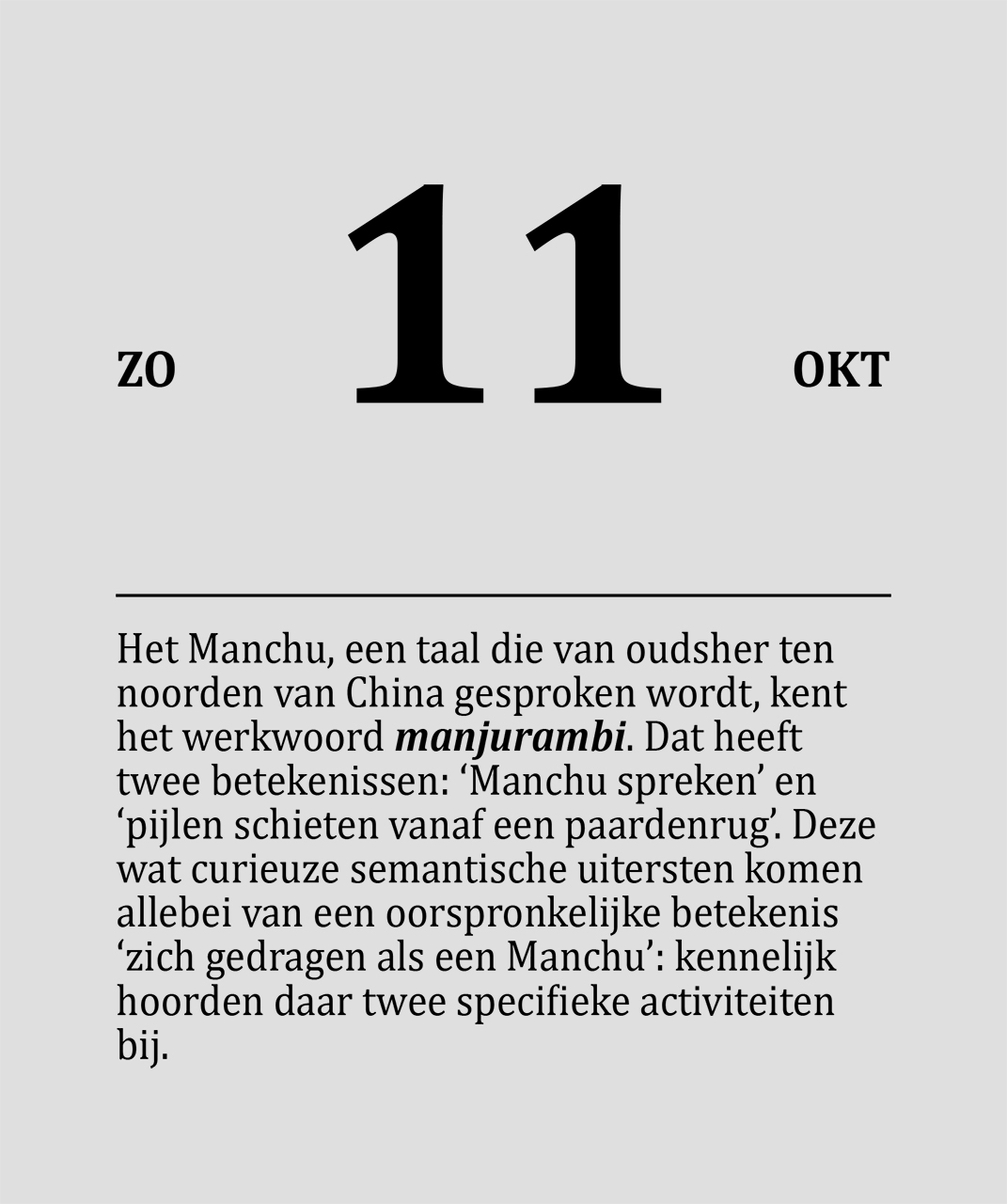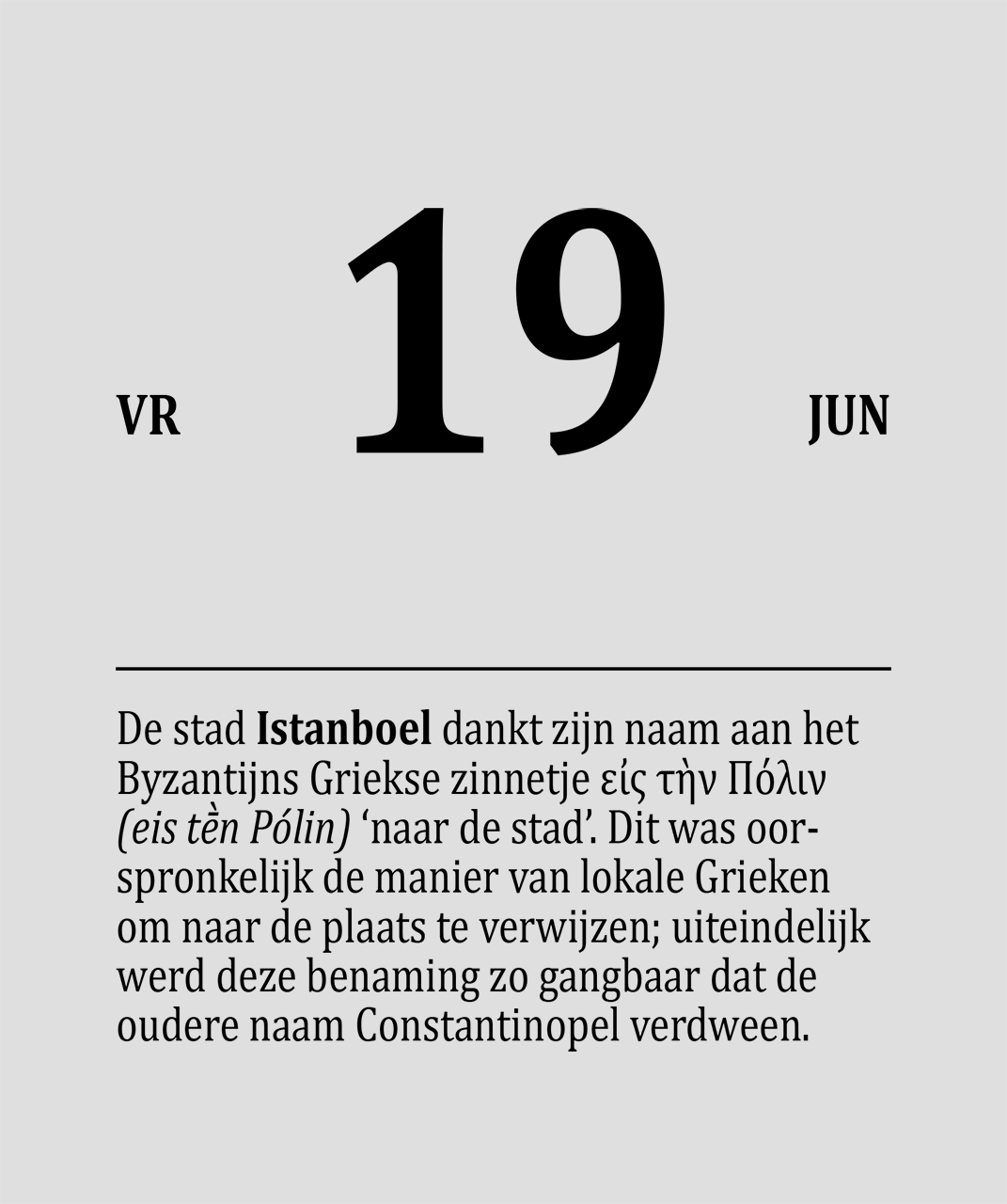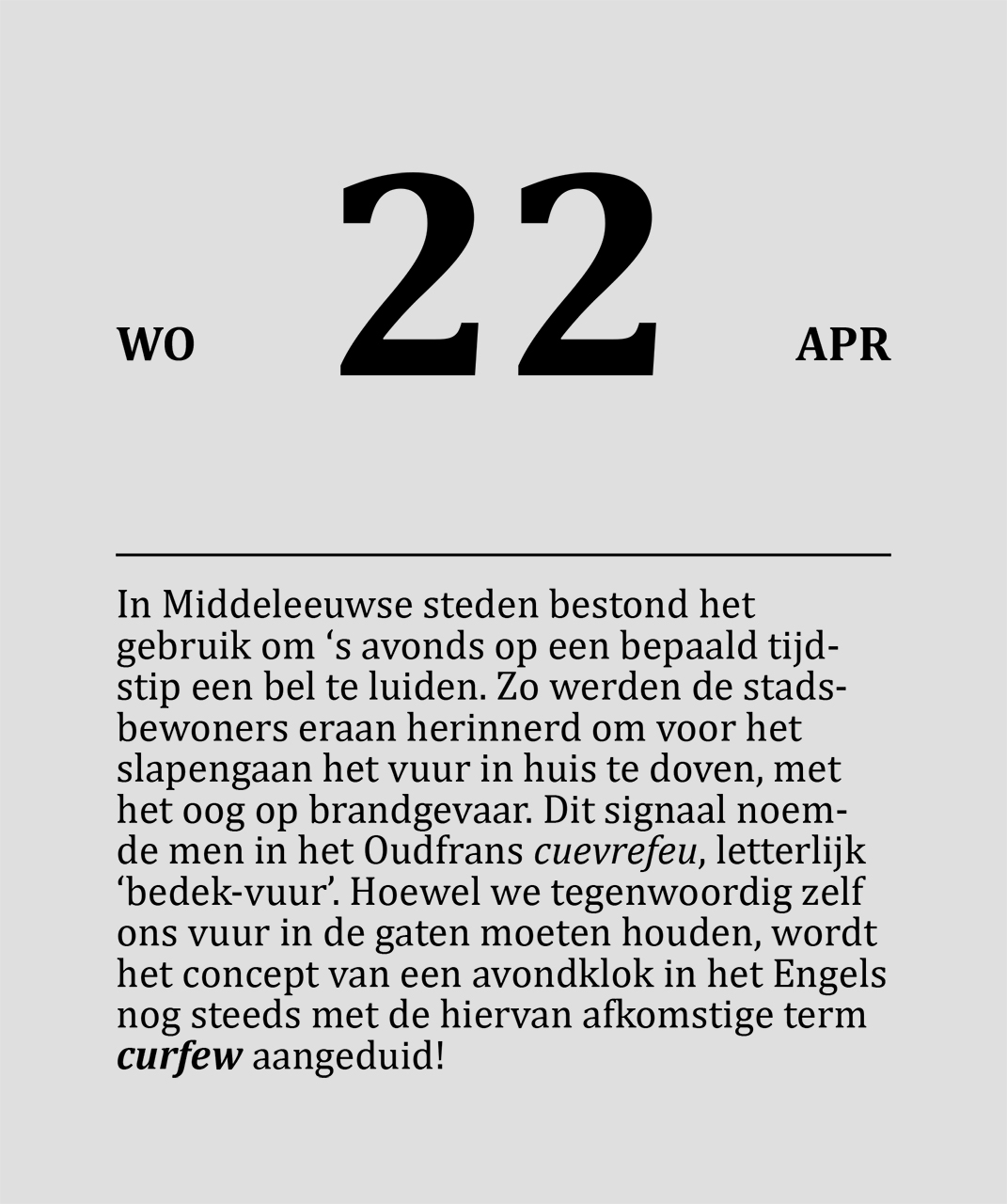
Etymology calendar: every day a word and its history
The Etymology Calendar for 2020, which was compiled by five linguistics students from Leiden University, has now hit the shops. After the resounding success of the first Etymology Calendar last year, this year’s version is being published by big-name publishing house Brill.

It started with an idea. Linguistics students Pascale Eskes, Vera Zwennes, Lotte Meester, Laura Dees, Ivo Boers and Gerard Spaans knew that the etymology – or origin – of words in various languages can be strange, interesting or funny. Some of them collected words with unusual roots or words from different languages that prove to have the same roots if you go back far enough. They realised that they weren’t the only ones to like language. What is more, they had already seen language calendars, but weren’t particularly impressed with them. So they decided to make their own, in English because that is the language of instruction in their specialisation of Comparative Indo-European Linguistics and more or less of the linguistics programme itself.
365 words
They decided to produce 150 copies of the calendar. But when their lecturers and fellow students heard what they were up to, the Excel sheet that Laura used to keep track of orders practically exploded. The students ended up printing 600 copies of the 2019 calendar, and ordering a further 135 copies later. The calendar was a resounding success therefore. Reason enough for a repeat performance this year, but then in Dutch because some people hadn’t been happy with the English version.
Last year, they put their heads together and shared the words that they already had. As they didn’t yet have 365 of them, they scoured their books and hit the library to find more. It was a conscious decision to use not only English or Dutch words but also words from a whole range of languages. They pondered and deliberated, scrapped some examples and filled the gaps with new ones. Until they hit the magic number of 365 and everyone was content.

Learning experience
The students discovered that publishing a book – because that’s what a calendar is in printing terms – is hard work. A lot of questions need answering. What should the calendar look like, both inside and out? What type of paper will you use? How will you bind the book? (With glue in the case of the calendar.) Should you outsource the design or do you know someone who can do it? (Yes, team member Gerard). How many copies should you print? How will you deliver the orders to people? How much will you charge? How will you keep track of orders and collect payments? It was a learning experience that was sometimes enough to drive them to despair. What do you do if 600 calendars are suddenly delivered to your student house? Luckily, Lotte found a free corner in her attic room. But it was great fun too, the books balanced – thanks to Laura – down to the last cent and they received plenty of compliments, also from within the programme itself.
Second edition published by Brill
So they decided to go for it again. Piece of cake, they thought, because they’d done it before. And this time they opted for Brill Publishing House, which specialises in academic books and other editions, generally in small print runs. It wasn’t the obvious choice, but most of the group had done an internship there and still had contacts there. A bit left field for Brill, but a fun sideline anyway. They are printing 1,500 copies of the Dutch version. Outsourcing it to Brill will save us a headache, the students thought.
With the exception of Ivo, who had switched to another degree programme, the same group set to work once again. They now had to come up with a Dutch version; Brill would be reprinting the English version from the year before for the international market. Once again it proved to be a mountain of work. They had to find not 365 but 366 words this time because 2020 is a leap year; luckily they discovered this in good time. But they haven’t suffered any lasting effects. When the reporter meets three of the five students, they’re like a breath of fresh air. They obviously have a lot of fun together.
The linguistics programme
We also talk about the degree programme. There is a faint cheer when the reporter mentions the term ‘Indo-European,’ and arms wave in the air. ‘Hooray! Someone who knows a term from our programme,’ says Pascale. ‘That doesn’t happen very often.’ The students are all doing the (English-taught) specialisation in Comparative Indo-European Linguistics, which they already opted for at the end of the first year. The Western and some Asian languages derive from Indo-European, and there are still many conundrums to solve.
‘Linguistics students are generally highly motivated,’ says Lotte. ‘It’s fantastic.’ It is an intense programme with a whiff of mathematics. One aspect of linguistics is discovering patterns between and within languages. The students explain how they dutifully learnt irregular verbs by rote, until they started studying linguistics only to discover that there is also a hard logic behind these. ‘I could already sense it,’ says Lotte. ‘That there was a rule hidden behind all the irregularity. If I had known it then, I wouldn’t have needed to learn all those verbs by heart.’

Language is all around you
At school, she was advised to study mathematics, says Lotte. ‘But the maths programme was too abstract for me.’ Then again, maths did nothing for Vera and Pascale. When asked what is so appealing about linguistics, Lotte answers: ‘Language is all around you. I sometimes ask people: what did you just say? How did you say it? Then I want to know why they have said something in a certain way. Sometimes I can’t stop thinking about language.’
One last question: same thing next year? They’re not sure. They don’t feel that they absolutely have to publish a new calendar each year; it’s not as if they have to provide continuity for their successors. ‘It’s our baby.’



